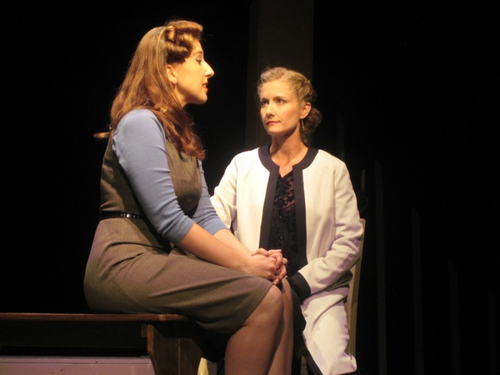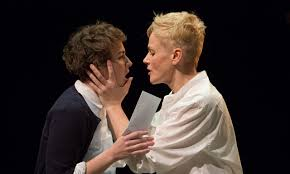If you are preparing for your audition for the next season, you need to make an excellent choice of monologues that will help take your abilities to the next level. Some of the recommended monologues are listed in the latter parts of this article with the aim of giving you a hint on the selection of the right monologue.
Selection of the Best Comedic Female Monologues from Plays
Selecting the appropriate monologue piece is the most stressful stage for the preparation of a big audition. In most cases, the piece that works well in full production will not be appropriate for audition monologue. Forget the stress you fall into any time you are looking for comedic female monologues from plays by learning what makes an ideal audition monologue and what you should avoid in pursuit of the best outcome.

1. Helpful tips on the choice of the right monologue from plays
The right choice for the most appropriate monologue is one that suits your needs and makes your preparation for audition easy and less complicated. The use of the right monologue will go a long way into ensuring that you can keep your audition skills sharp.
- Choose a monologue that suits you
When choosing comedic female monologues from plays, ensure that the monologues you select are appropriate, regarding gender and age. Select a piece that quickly helps you express your uniqueness, your strengths and the type of actor your nature fits. You should choose something that is age appropriate and not out of type. Age appropriateness relates to what you "read” but not what you are, which means that if you are a woman aged 24 who usually plays 17-year-olds, don't choose older monologues till your "actor type” changes. In short, you should not force a change with an audition piece because you will not be in a position of competing if you are outside your actor type. The best advice in the choice of monologue that suits you is to dominate the type of actor you are.
- Make it short
Monologues in auditions are usually short, which means that you will be given a brief time to deliver. It is therefore essential to select comedic female monologues which go for a maximum of two minutes.
- Pick a monologue that is active at the moment
You should choose a monologue that shows a character who is requesting something from another actor. You should avoid a monologue whereby a character is telling a story or explaining some of their memories. An active monologue should have an objective and have something that happens with the character at stake. Standard advice is that you should get a monologue where the stakes are high for your character, where he or she is following an objective but not telling a story. While making a selection for the appropriate monologue, you need to ask yourself questions like what you are trying to make the other person do, feel or understand and whether you succeed or not.
- Avoid pieces full of negativity
You should avoid choosing a piece that is full of offensive language, graphical violence, and sexual scenes because they might give a lousy taste of your audition. Audition is similar to a job interview where the interviewer, in this case, the casting director, knows nothing about you and the first impression determines what he or she thinks of you.
- Attractive, interesting and funny
Always try to select a monologue that is full of fun and saturated with humor. The piece doesn't have to be full of comedy, but it should have instances that can make someone smile.
2. Examples of comedic female monologues
- As You Like It (Helena)
The As You Like It (Helena) by William Shakespeare is one of the most famous audition monologues whose theme is love and acceptance. In the monologue, Helena laments when she learns that Bertram, who is her love, is leaving. She expresses her anguish by pointing out that she loves his weaknesses just as she loves his strengths because the undesirable qualities fit him making her love him unconditionally. One of the most touching and famous paragraphs in the monologue is:
O! were that all. I think not on my father;
Moreover, these great tears grace his remembrance more
Than those, I shed for him. What was he like?
I have forgotten him: my imagination
Carries no favour in 't but Bertram's.
I am undone: there is no living, none
If Bertram is away. It was all one
That I should love an unusually bright star
Moreover, think to wed it, he is so above me:
In his bright radiance and collateral light
Must I be comforted, not in his sphere?
The ambition in my love thus plagues itself:
The hind that would be mated by the lion
Must die for love. 'Twas pretty, though a plague,
To see him every hour; to sit and draw
His arched brows, his hawking eye, his curls,
In our heart's table; heart too capable

- Hamlet
Hamlet is a tragedy written by William Shakespeare and which is the shortened form of The Tragedy of Hamlet, Prince of Denmark. The play was written by Shakespeare to dramatize the revenge Prince Hamlet was called upon to wreak upon his uncle, Claudius, by the ghost of his father, King Hamlet. The reason why the ghost of King Hamlet was calling upon Prince Hamlet to revenge was the fact that Claudius had killed his brother and taken over the throne and married the widow of the slain. The play is one of the most extensive works by William Shakespeare, and its themes are mainly related to political revenge, suspected crime, and coups.
So many journeys may the sun and moon
Make us again count o'er ere love be done!
But woe is me! you are so sick of late,
So far from cheer and from your former state.
That I distrust you. Yet, though I distrust,
Discomfort you, my lord, it nothing must;
For women's fear and love holds quantity,
In neither aught, or in extremity.
Now what my love is, proof hath made you know;
And as my love is siz'd, my fear is so.
Where love is great, the littlest doubts are fear;
Where little fears grow great, great love grows there.
- A Midsummer Night's Dream (Helena)
The monologue is played by Helena where she laments over the fact that Demetrius is in love with Hermia but not her. The play reveals how Hermia is ordered by her father to take Demetrius for marriage that is loved by Helena. On the other side, Hermia is in love with Lysander. The central theme portrayed by this monologue is frustration, rivalry, and desire.
How happy some o'er other some can be!
Through Athens I am thought as fair as she.
But what of that? Demetrius thinks not so;
He will not know what all but he do know.
And as he errs, doting on Hermia's eyes,
So I, admiring of his qualities.
Things base and vile, holding no quantity,
Love can transpose to form and dignity.
Love looks not with the eyes, but with the mind,
And therefore is winged Cupid painted blind.
Nor hath Love's mind of any judgment taste;
Wings, and no eyes, figure unheedy haste.
And therefore is Love said to be a child,
Because in choice he is so oft beguiled.
As waggish boys in game themselves forswear,
So the boy Love is perjured everywhere.
For ere Demetrius looked on Hermia's eyne,
He hailed down oaths that he was only mine;
And when this hail some heat from Hermia felt,
So he dissolved, and show'rs of oaths did melt.
I will go tell him of fair Hermia's flight.
Then to the wood will he to-morrow night
Pursue her; and for this intelligence
If I have thanks, it is a dear expense.
But herein mean I to enrich my pain,
To have his sight thither and back again.
Summary
Choosing the appropriate monologue is one of the keys to success in sharpening audition skills and preparation for a presentation. Some factors should be considered in the choice as discussed because they act as the determinants on whether your monologue is attractive and objective. The examples of comedic female monologues from plays selected for discussion in this article offer an example of the monologues that you should choose in a bid of proving your audition ability.